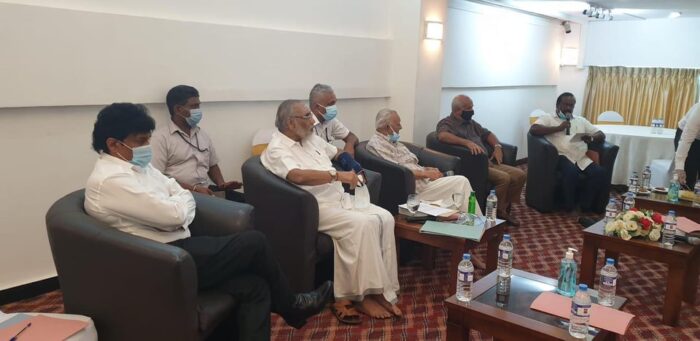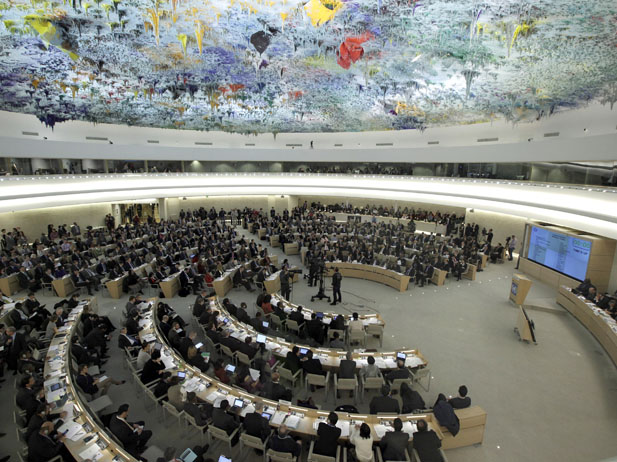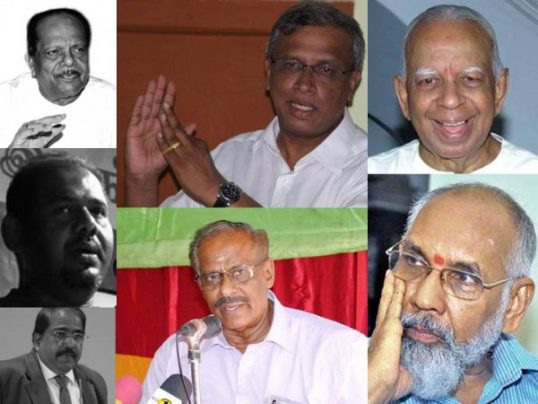by Jathindra, Samakalam, January 2, 2022
[translated from the Tamil by Google Translate with some edits]
There is a claim in Naladiyar (a Tamil poetic anthology written 100 CE) “All the days that pass are your lifetime.” Does this apply to our politics? Because in a political struggle – as the years go by, people need to achieve their goals for the year. But as far as Eelam Tamil national politics is concerned, the goals have always been unattainable. Twelve years have passed, with such words as ‘may come’ & ‘may happen’. As each year passes like this, no progress is reported in Tamil politics but various things happen. Thinking on this basis, is each passing year accelerating the decline of Eelam Tamil politics?
The tenth anniversary of international pressure on Sri Lanka falls on March this year. In 2012, the first resolution on Sri Lanka was passed at the United Nations Human Rights Council with US support. This was then widely known as the US proposal. In that sense, it is ten years since the United States intervened in Sri Lanka.
These pressures were applied in the context of accountability for human rights abuses during the final days of the war… But the Sri Lankan government has not been held accountable for ten years. While our hope is that the Sri Lankan state can be subjugated through international pressure, the Sinhala ruling class, on the other hand, is operating on the hope that it will continue to successfully shirk accountability. On this basis, the Sinhala ruling class, which defeated the LTTE in the war, has succeeded in defeating the expectations of the Tamils in the last twelve years since the war. As a testament to these experiences, the year 2021 is failing and passing us by normally. Like previous years!

Since the withdrawal of the All Ceylon Tamil Congress Party from the Tamil National Alliance in 2010, there has been a lot of talk about unity among the Tamil nationalist parties. There have also been numerous attempts at unification. But nothing succeeds. 2021 is no exception to these experiences. Even in sending a letter to the UN Human Rights Council, the Tamil National Parties have failed to act in unison. The only thing that can be mentioned is the creative thing that took place in 2021. That is to say, it can only refer to meetings between Tamil-speaking parties arranged by the TNA federation’s partner parties. These meetings were aimed at moving towards India. Based on the Indo-Sri Lanka Accord, the approach to India is absolutely correct. At the time of writing, the consensus through meetings has not been documented. The move comes amid fears that the provincial council system, which is relatively safe for the Tamil people, could be abolished as the country is under the control of an austerity regime.
Predictions in politics are always complex because changes in world politics cannot be predicted. As Professor Noam Chomsky puts it, tomorrow’s weather cannot be predicted today. Conditions may change anyway, but the nature of those changes can be somewhat inferred. It is on the basis of these assumptions that political studies are presented. So any study is not a complete conclusion.
Thinking on this basis, there are two things that are going to be important in the events that will take place in 2022. For one, the joint demand of the Tamil-speaking parties towards India will be an important one. If this happens, it will be a demand for New Delhi in the aftermath of the 1987 Indo-Lanka Accord. As India continues to insist on the 13th Amendment, this demand has a primary political significance.
Next, at the UN Human Rights Council, the United States will rejoin. The United States will remain in charge until 2024. In 2018, the United States withdrew from the Human Rights Council following the seizure of power by the Donald Trump-led Republican Party. This is why some are saying that the US will announce some things about Sri Lanka in January. It was the Obama-led Democratic Party administration that passed the first resolution on Sri Lanka in 2012. In this situation, the administration of the Democratic Party is likely to exert some pressure on human rights issues in Sri Lanka, as it intends to work with the Human Rights Council. These two issues are going to be the main factors influencing Eelam Tamil politics. Beyond this many people can talk about many things, but none of them can be major issues. Because without the firm intervention of India in a political solution for the Tamil people, no progress can be seen in this matter.
The Tamil political arena for 2022 is going to be based on the two main points I mentioned above. But in this case too there should not be excessive imagination. To understand this, we need to look at the geopolitical power struggles taking place in the Indian Ocean region. This columnist does not always agree with the claim that Tamils can accumulate victories through the handling of geopolitics. Because Tamils are not a party in geopolitics. Tamils do not have the strength to be a party.

Geo-politics centered on Sri Lanka is essentially associated with the Sinhala rulers of Sri Lanka. Thinking on this basis, the hatred and love for the island of Sri Lanka depends on the external decisions of the Sinhala rulers. When the Sinhala rulers align themselves with the Indo-US powers, it manifests itself as love and conflict – as hatred. On that day, it was because of JR Jayewardene’s foreign policy that Indira Gandhi & India hated the Sinhala rulers. The result of that hatred was the Indo-Sri Lanka Accord. Therefore, the politics of the Tamils is caught between the love and hate of the powers that be. If you think about geopolitics without understanding this, it can be a good daydream.
We must look at the politics of the island of Sri Lanka today as the politics behind the failure of a regime change. It was widely believed that there was an Indo-US background behind the 2015 regime change. Mahinda initially blamed Indian intelligence for his failure. In 2015, a coup took place in Myanmar, which had long been under military rule. The United States supported it. But both regimes have failed. The defeated Rajapaksa Company is back in power. Myanmar is once again under military rule. Aung San Suu Kyi has been re-incarcerated. In such a scenario, will there be opportunities to exert intense pressure on Sri Lanka?
Because if severe pressure is exerted on Sri Lanka, the hardline Rajapaksa faction is likely to lean more towards China. While preventing China’s grip on Sri Lanka from tightening further, US pressure can be exerted so that the rulers do not lean too much towards China. The ultimate goal of these pressures may be another regime change or a political reorganization within the Rajapakse camp. In the meantime we need to consider another point. That is, if the Republican Party regains power in the United States in the 2024 election, the United States will walk out of the Human Rights Council.
With all of these factors in mind, we must anticipate the political moves that will take place in 2022. One thing is Vellidaimalai. That is, conditions can change for the worse at any time. So only by predicting the environment in which conditions are favorable and acting accordingly, can we achieve what we can. Tamils can never win things in a single leap because the Eelam-Tamils do not have the strength, opportunities or support of outsiders. These twelve years of political experience have clearly demonstrated this.

So 2022 is going to be an important time to act on what we have learned so far. But if we continue to refuse to learn or, floating in the imagination that we have learned, waste time – this year will fail us just like previous years and pass us by normally. With each passing year, the decline of our politics will be further confirmed. In the end there will be Tamils but there will be no separate politics for Tamils.